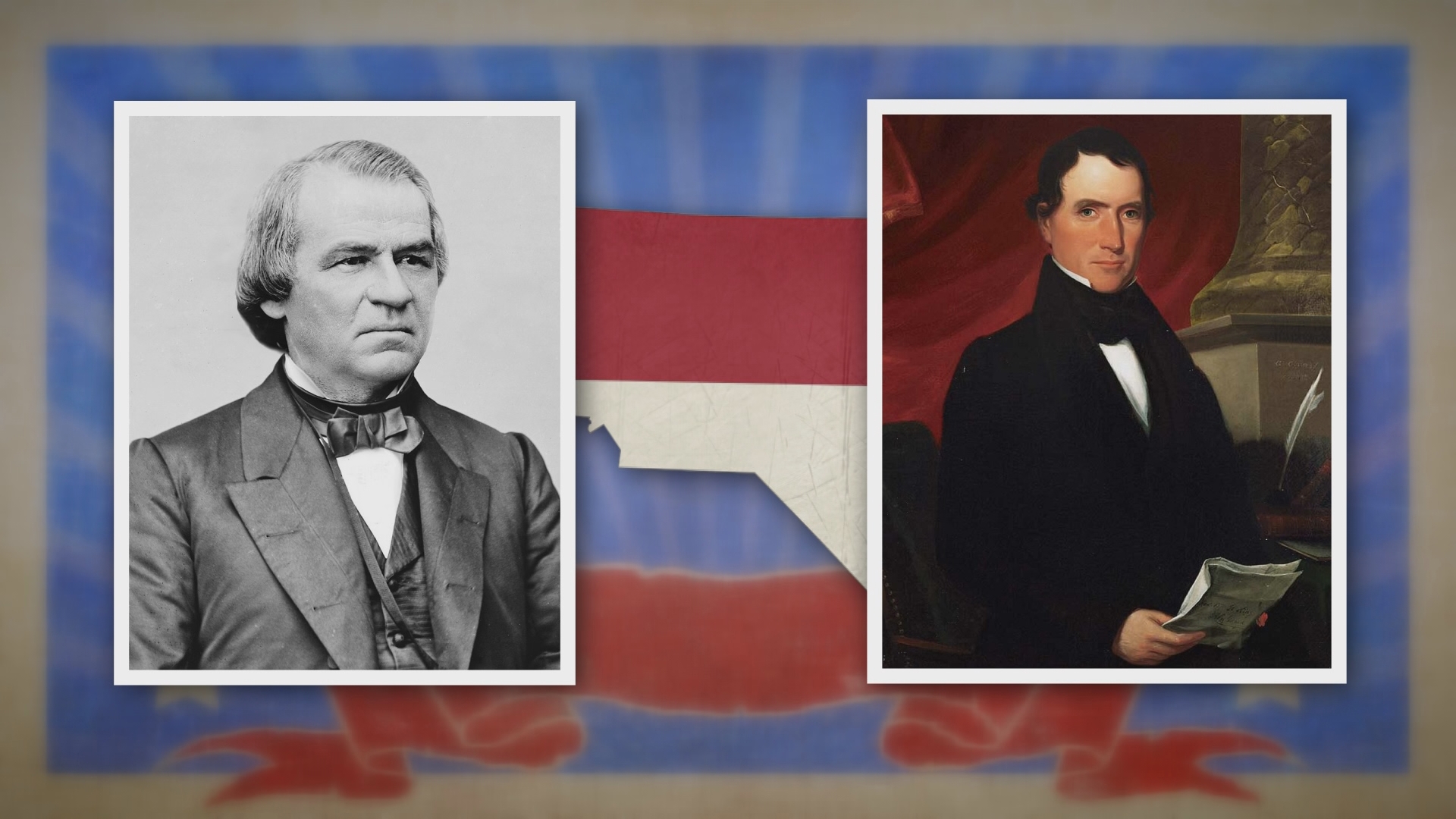GREENSBORO, N.C. — By now, many North Carolinians are aware that Governor Roy Cooper's name has been identified as on the shortlist for Kamala Harris’ potential vice presidential running mate.
In light of this news, the question is posed: "What has been North Carolina’s history with the position of vice president?"
As part of the original thirteen states, North Carolina is no slouch when it comes to rich American history.
“Internally, the state was relatively vital, it has nothing to be ashamed of in comparison to other states, on the national stage, people kind of ignored North Carolina," said Dr. Michael Kennedy of High Point University's History department.
However, when it comes to representation on the Executive Level, the White House has seen very few North Carolina-natives take the vice presidential spot, save for that of: Andrew Johnson and William Rufus King.
“Born in 1786 in Sampson County, graduated from the University of North Carolina Chapel Hill," said Dr. Kennedy.
King served as a member of the House Representatives for North Carolina and later, after moving to Alabama, served as one of the state’s first Senators for 5 terms.
“In 1852, he was selected as Franklin Peirce’s vice-presidential candidate, but then you have the unfortunate circumstances of during the campaign, the 1852 presidential campaign, King became ill with what was called “consumption” at the time, now called tuberculosis," Dr. Kennedy said.
While their ticket won, King never made it to Washington D.C. and died with less than a month on the job.
“Johnson, in many ways, is a more interesting character," interjected Dr. Kennedy.
The future 17th President of the United States has roots in N.C.,
“He was born in Raleigh in 1808, right around the same time that Lincoln was born in Kentucky, both were actually born into poverty," said Dr. Kennedy.
Johnson never went to school and instead worked as a tailor’s apprentice until he ran away ay 15 years-old. Years later, Johnson married and set up shop as a tailor in Tennessee where his political career blossomed. His path included Greenville mayor, Tennessee governor, and the state's senator.
“When succession began, Johnson started to give speeches in Tennessee against secession. Adamantly against succession to make sure that Tennessee stayed in the union," said Dr. Kennedy.
During the Civil War, Lincoln saw the potential of their allyship and lent an olive branch.
“Lincoln wanted to make a point that he was willing to work with democrats, Johnson was a democrat, he liked what he was doing to try and get Tennessee to get back up to speed and into the union, so he went to other republican leaders and said that I want Johnson to be my running mate," added Dr. Kennedy.
The Lincoln-Johnson ticket was ultimately victorious, but like King before him, tragedy would strike early on.
"He met Johnson for the first time, on April 14th, the afternoon of April the 14th... But we don’t know exactly what went on in that meeting and that evening, Lincoln was assassinated, and Johnson's vice presidency was over," said Dr. Kennedy.
In totality, these North Carolina-born men served roughly 3 months as vice president. Not long by any means, but a mark in the history books nonetheless.

